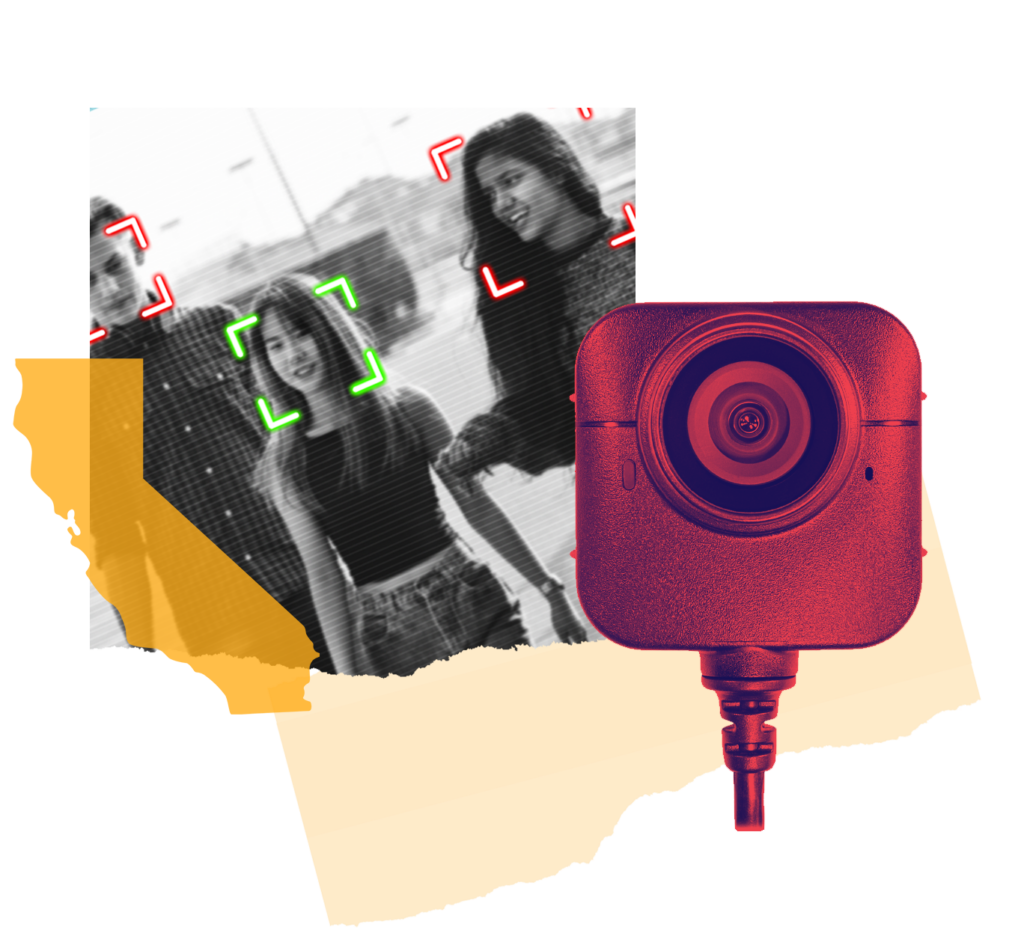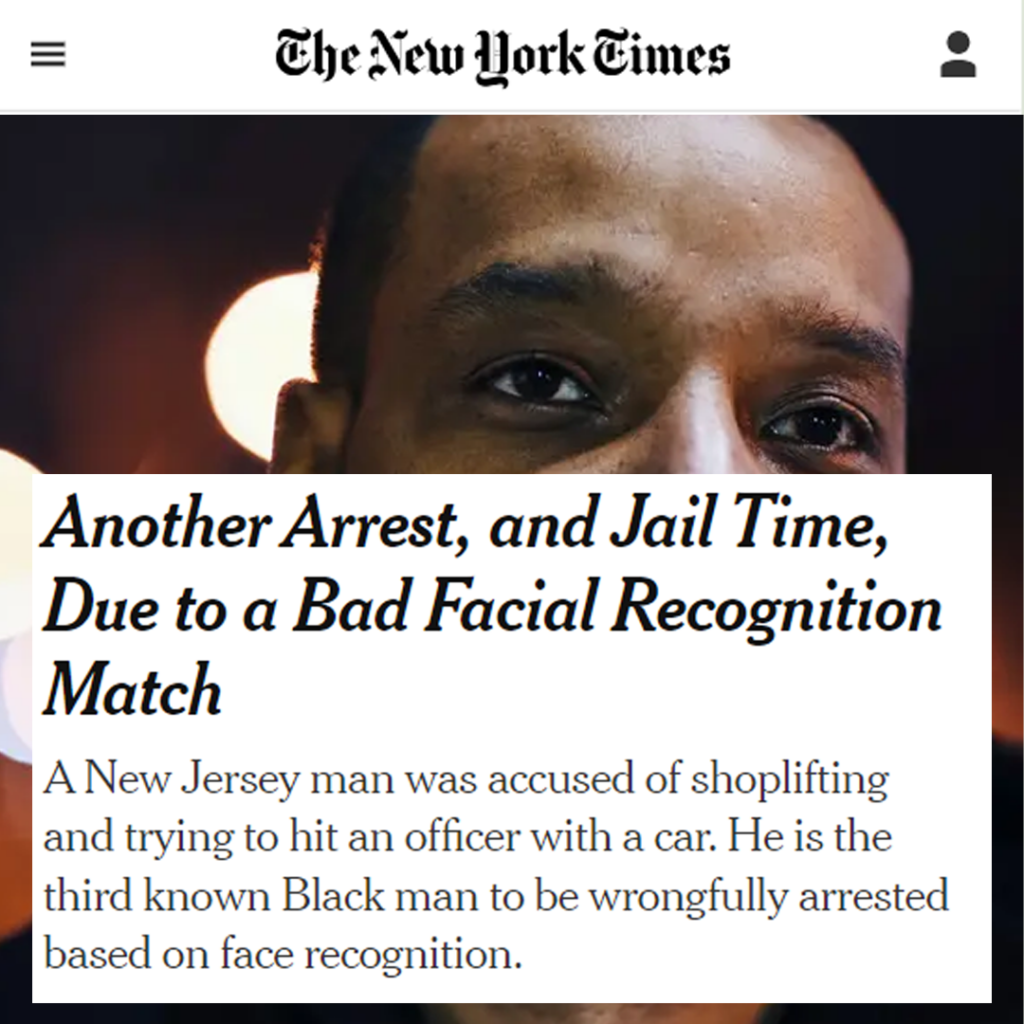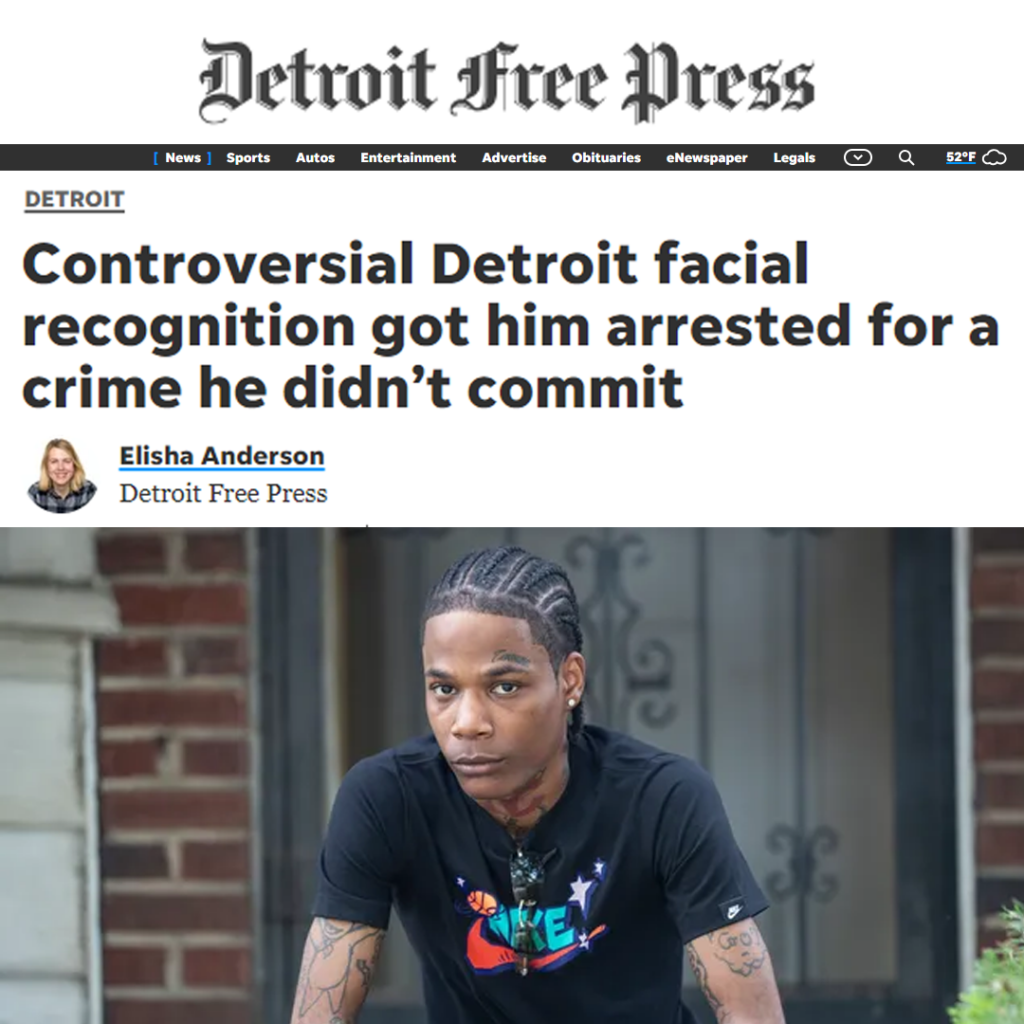Once again, California refused to endorse face surveillance. Now it’s time to ban it.

For the third time in five years, California rejected a bill that would have greenlit government use of facial recognition across the state.
Assembly Bill 1814 (AB 1814) died in California’s Senate Appropriations Committee late last week. If passed, the bill would have created one of the worst facial recognition laws in the country, blessing the use of government facial recognition under the pretense of reining it in.
All of us at the ACLU are taking a big breath of relief, and you should too. We opposed AB 1814 alongside multiple survivors of facial recognition-fueled wrongful arrests. They were joined by a massive and diverse coalition of racial, reproductive, immigrant, economic, and LGBTQ+ justice advocates.
Here’s the big takeaway: Californians do not support any law that would sanction the government’s use of facial recognition. For the third time in a row, the people have made this clear to the legislature, pushing back against weak bills that would legitimize face surveillance. Lawmakers should take this movement and the failure of AB 1814 as a mandate to protect their constituents from this privacy-eviscerating technology. The only surefire way to do that is by prohibiting the police from using it.
What AB 1814 Got Wrong:
AB 1814 disguised itself as something that would protect civil rights, but it would have in fact been a disaster for Black and Brown people, people seeking abortions, immigrants, LGBTQ+ people, and anyone who cares about privacy.
The bill required that any time a police department uses facial recognition technology to arrest someone, the officer would need some other reason beyond the match itself to make the arrest. While this might sound good on paper, in practice we know it means close to nothing.

Experience shows that this type of approach causes – rather than prevents – harm. It would have been extremely easy for the police to find an additional reason to justify a person’s arrest. For example, we’ve seen police use facial recognition to create a photo lineup of doppelgängers of people who look like, but are not, the suspect – a recipe for disaster that has time and again resulted in the wrong person being chosen.
AB 1814 would have also let police build facial recognition databases from state photo records, placing anyone whose photograph is in the DMV or another database into a perpetual virtual lineup.
The end result is that instead of limiting facial recognition, AB 1814 would have accelerated it. Right now, the technology is in a legal grey area. But with a legislative seal of approval, it would become facial recognition open season in California.
The Dangers of Face Surveillance
By focusing on the standards for face surveillance arrests, instead of the consequences widespread face surveillance would have on our democracy, AB 1814 missed the forest through the trees.
Emphasizing false arrests as the primary danger of face surveillance tacitly suggests that all other uses of facial recognition are “safe” – including using facial recognition to out LGBTQ people, scan someone’s emotions, or determine someone’s political leanings, and more.
While using face surveillance to read someone’s mind obviously sounds like junk science, some surveillance companies are trying to convince police departments that it’s possible. Whether the results are accurate or not, attempts by the government to use facial recognition systems in these ways would cause real harm to Californians.
The people who would be most impacted by face surveillance have long warned about its dangers. This technology has been repeatedly found to be racially biased. But even perfectly accurate facial recognition is anti-democratic at its core. In a democracy, the government should not have the power to effortlessly identify, monitor, and track the political and social activities in mass. The danger is particularly high for the communities most at risk of state persecution (see, for example, Project 2025).
No matter how well intended, laws like AB 1814 that condone rather than prohibit face surveillance are a gift to those who would use the federal government to deport immigrants, identify abortion seekers and protesters, and persecute trans children and adults.
The Only Way Forward is a Face Surveillance Ban

The half measures in AB 1814 wouldn’t have prevented any of the known wrongful arrests involving facial recognition, almost all of which occurred in jurisdictions with exactly the same requirement proposed by AB 1814. Notably, the lawyers representing these survivors of face recognition misuse and errors wrote to the California’s legislature and testified in opposition to AB 1814. Alongside these attorneys, the ACLU led an opposition effort comprised of more than 70 reproductive justice, LGBTQ+, immigrant’s rights, racial justice, and other civil rights groups opposing the bill.
The only way California can protect its people from face surveillance is by banning it outright. Rather than enshrining the government’s reliance on a technology that is the digital equivalent of “stop and frisk” or “show your papers” laws, we can choose to enact policies that protect and make people safer.
Thankfully, our grassroots movements are showing the way. Starting in San Francisco and in communities across the US, people and their elected leaders have banded together to take facial recognition off the table with legal prohibitions that now protect millions. To support their efforts, we just published a new report that urges policymakers and people to look past the hype of surveillance systems and pass similar bans in their own communities.
When it comes to face surveillance, it is clear where the people stand. Now it’s time to make sure our lawmakers stand with us.
Issues: Democracy & Civic Engagement